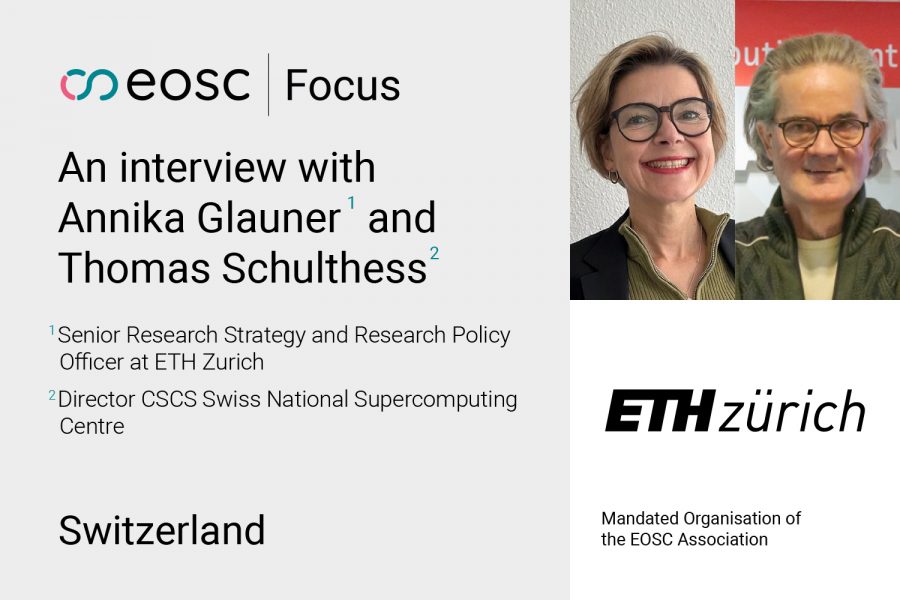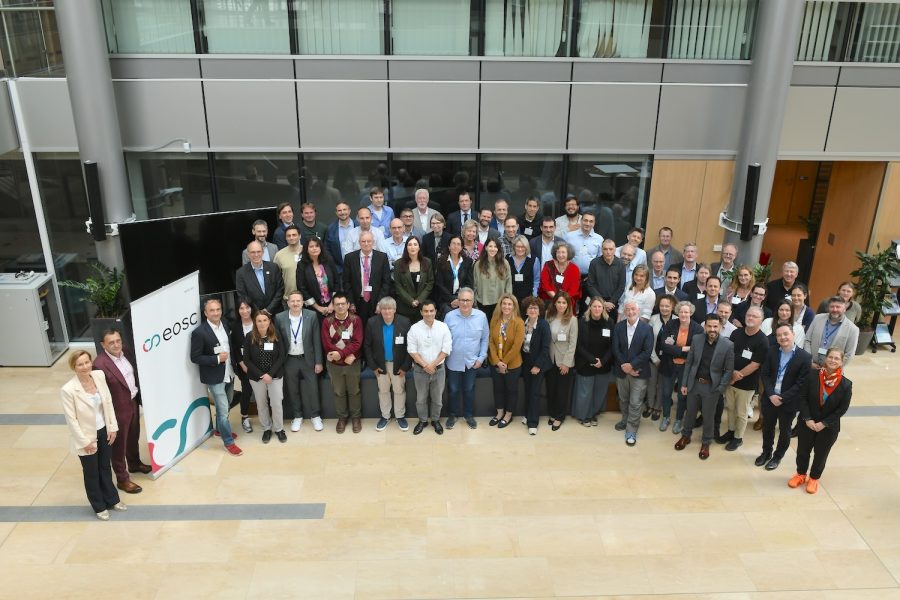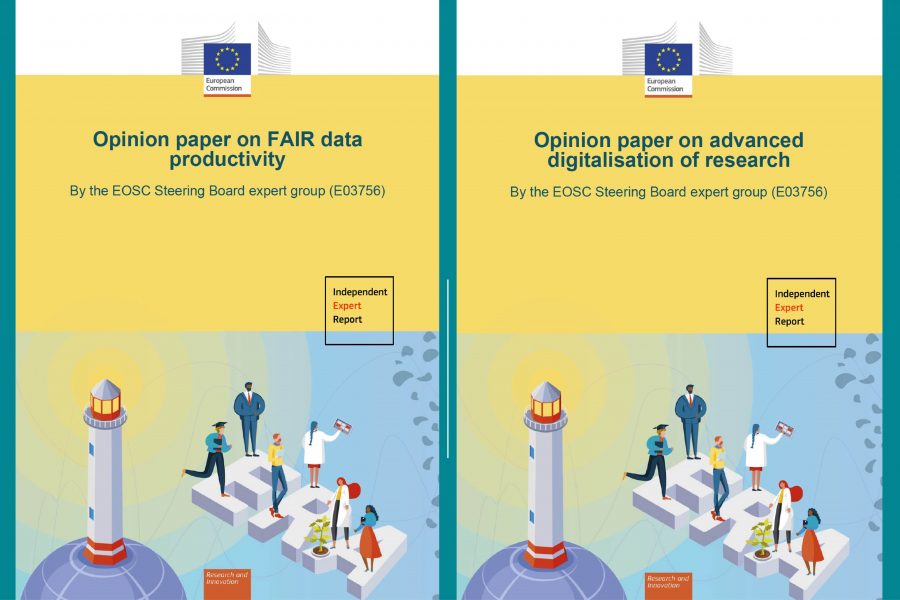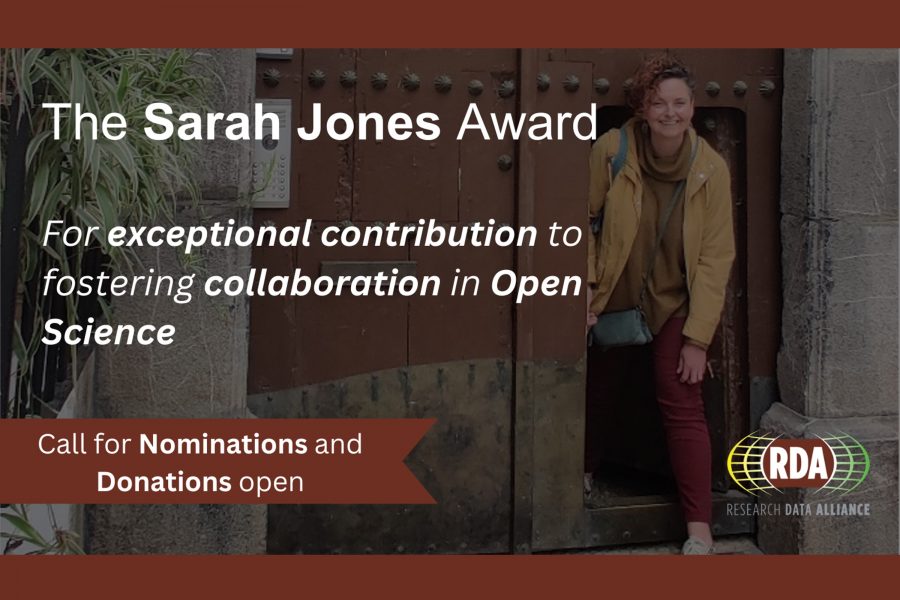After the EOSC-France virtual days in 2021 and 2022, the first in-person Tripartite Event in France was hosted by the University of Montpellier in a hybrid format from June 13th until June 14th, 2023. Approximately 40 people attended the event in person, while 35 joined virtually. The event gathered representatives of the European Commission, the EOSC Association, and the French Ministry of Higher Education and Research (MESR). In addition to the main stakeholders, the audience included participants from the research community, research performing organisations, universities, and the national structure ‘École EOSC France’.
On the first day, Anne Laurent, vice-president delegate of Open Science at the University of Montpellier, welcomed all participants and introduced the first speaker, Laurent Crouzet, head of the Department of Digital Services and Infrastructures from the Ministry of Higher Education and Research of France (MESR). Crouzet highlighted France’s experience over the years in areas such as FAIR data, cross-domain services, and e-infrastructures, expressing hope that the EC will continue to support EOSC beyond 2027, as the MESR plans to do on the national level.

Michel Schouppe, Senior Expert of the European Commission and team leader on EOSC in the Open Science Unit for DG RTD, referred to EOSC as a pillar of the EU digital transition policy and emphasised the need to leverage national investments in research infrastructures. He emphasised the importance of working on key enablers, as EOSC is a multi-stakeholder approach that needs to be implemented gradually. Tobias Wiesenthal, Deputy Head of the Open Science Unit for DG CNECT, represented the European Commission (EC), added that EOSC should be viewed as a federated system of systems, with EOSC-Core serving as a starting point.
The extensive participation of France in EOSC and its Task Forces was presented by Ute Gunsenheimer, Secretary General of the EOSC Association, showcasing France as one of the European countries with the highest organisational involvement in EOSC. She also mentioned the ongoing discussions with the EC regarding new tasks for EOSC, such as deploying and operating the EOSC EU node and expanding the EOSC federation. This led to a lively discussion on the future development of the EOSC node and national nodes.
Volker Beckmann, representative of the EOSC Steering Board (EOSC-SB) and of the EOSC national initiative, the Collège EOSC-France, focused on the key players for EOSC in France, providing an overview of the country’s position on EOSC and Open Science in terms of national and institutional policies, involvement in EOSC projects, best practices, and concrete examples related to FAIR data, Open Access, and Data Management.
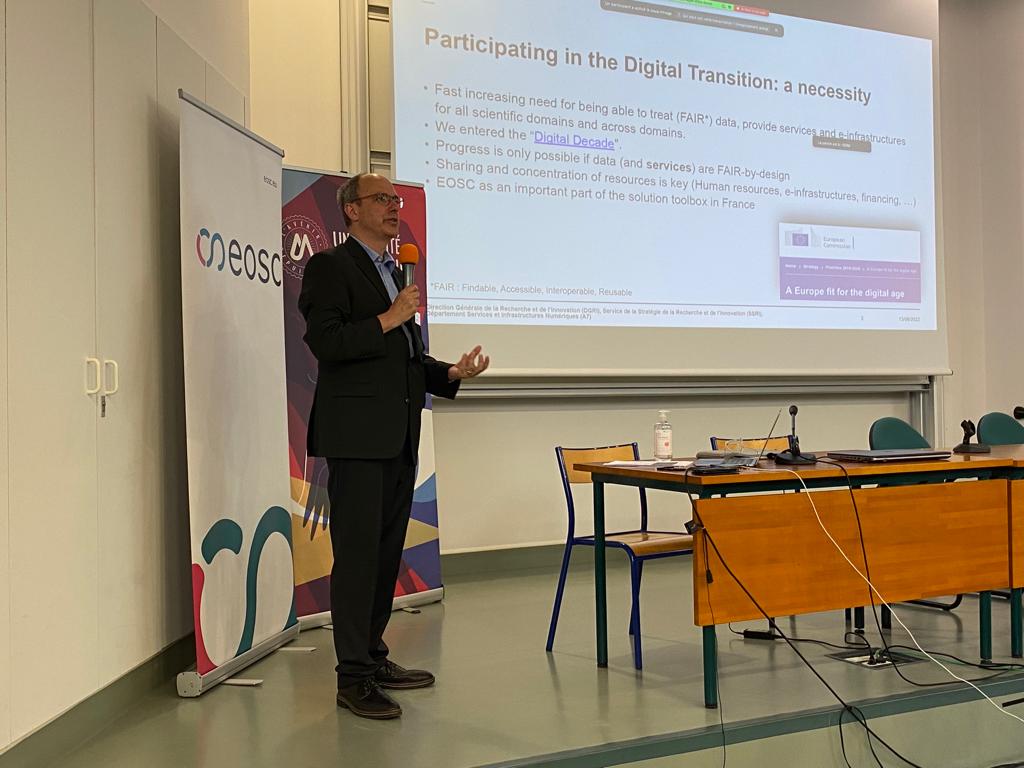
From the Board of Directors of the EOSC Association, Suzanne Dumouchel shared her perspectives and thoughts on building a strong EOSC, addressing questions such as its target audience, financing before and after 2027, and expectations regarding implementation in the coming years, with the Minimal Viable EOSC and the creation of the EOSC node as central themes.
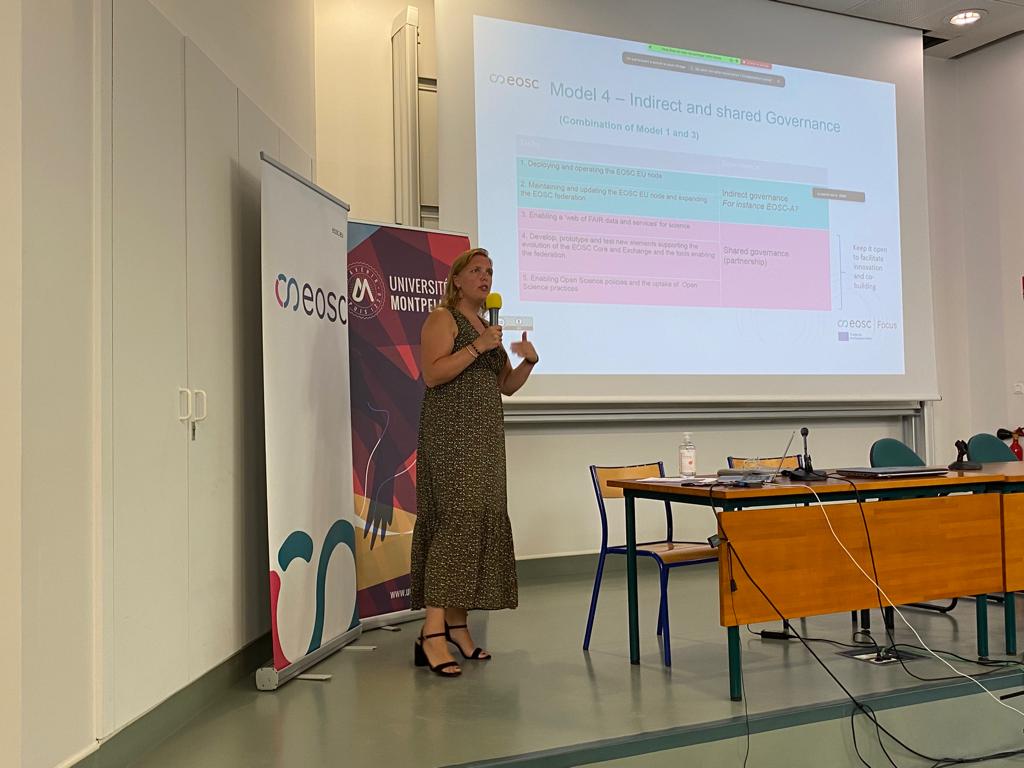
After a coffee break, four EOSC success stories were presented. The Diamond Plan and the DIAMAS project focused on Open Access within a sustainable scholarly communication ecosystem. MesoNET showcased the process of establishing a distributed national mesocentre infrastructure and creating a research infrastructure. EOSC-Life France emphasised the importance of common tools for creating and optimising a collaborative space for the life sciences. The ESPADON project presented an interdisciplinary mapping of cultural heritage, illustrating what a multidimensional cultural heritage atlas ecosystem could look like.
The last session of the day consisted of a panel discussion where participants shared their thoughts on the main challenges for EOSC. Laurent Crouzet emphasised the need to demonstrate the added value of EOSC and discuss funding plans beyond 2027. Michel Schouppe stressed the importance of having a tangible EOSC by then and preserving its public root nature even with the inclusion of new or private partners. Ute Gunsenheimer prioritized the five C’s: countries, coordination, connection, convergence, and communication. Baptiste Cecconi, a researcher at the Observatoire, suggested utilizing existing resources to build the future EOSC.
The day concluded with a visit to CINES (Centre Informatique National de l’Enseignement Supérieur), a national data centre with HPC infrastructure. During dinner, participants engaged in detailed discussions about the topics and open questions from the day while enjoying good food and company.
On the second day of the Tripartite Event, new projects and key themes related to Open Science and EOSC were featured. Jean-François Dufayard of the IFB (Institut Français de BioInfomatique) highlighted the connection between the IFB and ELIXIR, the European infrastructure for bioinformatics, identifying common ground between ELIXIR and EOSC. David Chopard-Lallier and Sébastien Peyrard unveiled the new French EOSC website, https://eosc-france.fr/. They discussed defining and implementing strategies and tools to increase EOSC knowledge, improve communication and dissemination within the research communities in France. Clément Jonquet focused on how the FAIR-impact project influences FAIR solutions across EOSC before the coffee break.
Sylvie Rousset (CNRS) presented COARA and explained the need to change the evaluation methods in research. Joanna Janik emphasised the importance of skills and competences in the EOSC context, highlighting their role in implementing Open Science. These presentations led to a panel discussion on how France can enhance its impact on EOSC nationally, discussing the recognition and dissemination of best practices, using a common language, finding accelerators and networks to facilitate progress, and structuring all research in France. These ideas aim to improve participation in EOSC and establish Open Science as the new standard for scientific endeavours.
Volker Beckmann concluded the second day of the tripartite event by providing an overview of the opportunities presented by the HORIZON-INFRA-EOSC-2024 program, and Anne Laurent summarised the fruitful two-day event with her closing statements.


